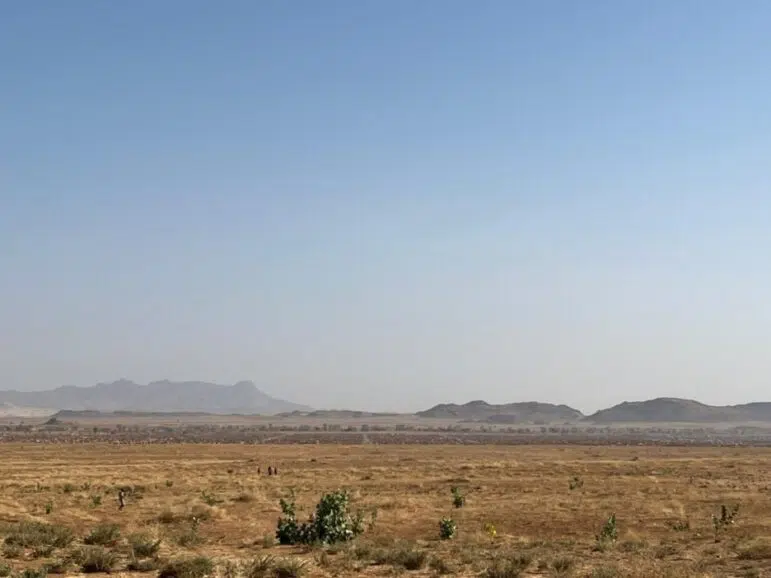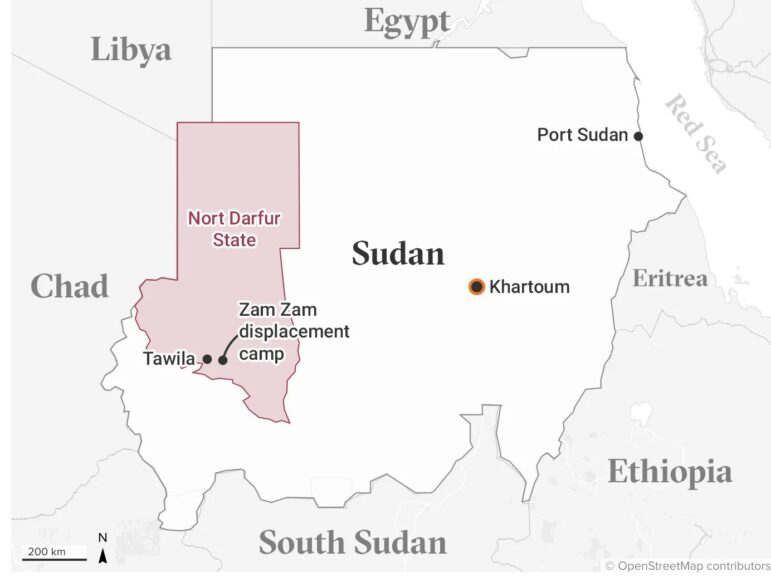“We Didn’t Stop When We Were Displaced”: Amal’s Story of Protection & Persistence in Sudan

When Amal* fled Zamzam camp, she didn’t leave her purpose behind.
Trainings provided by our Sudan staff in early 2023 led her to become a Women Protection Team (WPT) leader. In fact, Amal can still remember the pride she felt as she helped organize the special event that marked the achievement of the WPT members. It was a day filled with joy, drumming, dancing, and speeches from women leaders about safety, strength, and working together to protect one another. Just weeks later, the war broke out and changed everything.
The shelling in El Fasher had been getting worse for weeks. Even before the airstrikes intensified, there were signs of rising instability. Markets began selling out of staple items, prices for everyday items skyrocketed, and the sound of fighting echoed through the nights. Like thousands of others, Amal had no choice but to flee with her children. They joined the wave of civilians that made their way to the town of Tawila, which was reported to be a safer town.
While Amal could only bring with her what she could carry, her experience as a Women’s Protection Team member equipped her with invaluable skills.
Before being displaced, she was one of the 120 women trained in Zamzam's internally displaced persons (IDP) camp. These women worked daily to keep their community safe. They led firewood patrols to protect women and girls from attacks, accompanied survivors to medical and psychosocial care, and collaborated with NP and other partners on violence prevention and response. Together, they made up four groups of trusted, coordinated, and community-led teams that formed a critical layer of civilian protection within a camp of 300,000+ people.
Rebuilding Protection Networks in Tawila
When these networks of women were scattered by war their protection work didn’t dissolve. Surrounded by shelters cobbled together by tarps, the women are rebuilding the Women Protection Teams.
Now in Tawila, Amal has reconnected with 25 other WPT members from Zamzam and El Fasher. Together, they’re reviving the work they once led, this time under conditions that present their own set of challenges.
Tawila town has been overwhelmed. With hundreds of thousands of people displaced from El Fasher and surrounding areas, host families and IDPs are squeezed into the heart of the town, especially south of the wadi riverbed. Conditions are deteriorating: inadequate shelter, scarce water, and limited health services. The center of town is increasingly cut off, but this is where the hospital, the market, and humanitarian services offices are located. The upcoming rainy season threatens to wash out the only bridge connecting this hub to the southern encampments. If that happens, thousands could lose access to care for weeks.
But Amal and the other WPTs aren’t waiting for things to get worse before taking action. With support from NP, Amal and her peers are working to reestablish safe pathways for survivors of gender-based violence. They are linking with midwives and health workers to organize confidential referrals, raising awareness about the services that still exist, and accompanying women to access them safely — despite the distance, the fear, and the lack of supplies.
Daily violence from armed herders and militias is also on the rise outside the encampments, especially for women and girls who venture outside to collect firewood or grass. Domestic violence is also surging within the cramped and unstable shelters.
They’re also thinking ahead. Amal’s team is working with NP and partners to increase visibility of services, accompany women safely outside the camp, and begin rebuilding their community-based prevention work from Zamzam Camp. They’re identifying safe spaces for women and girls, linking with health workers, and training new volunteers from among the displaced.
Despite their fear, Amal and the other WPTs are exploring ways that they can do more. Can they coordinate protective presence patrols by rebuilding their Community Protection Teams in Tawila? Can they reactivate early warning networks, even if some members are still back in El Fasher? Can they make sure no woman or girl is left without someone to turn to?
There is no easy answer in Tawila. But Amal is not waiting for perfect conditions to begin again. She, like many others, recognize that protection doesn’t stop when folks are displaced. It adapts.
“We didn’t stop when we were displaced,” she said. “We are still here, and we are still protecting each other.”
*Composite story

